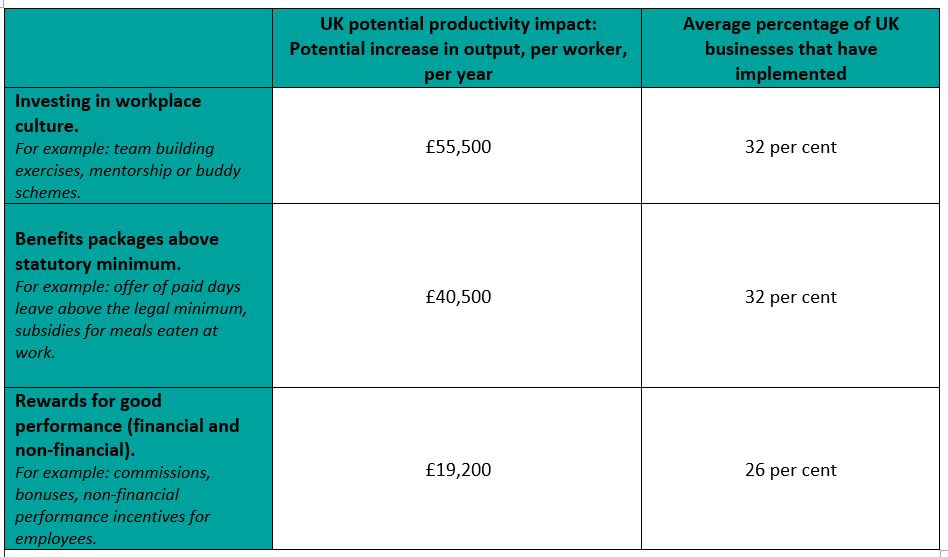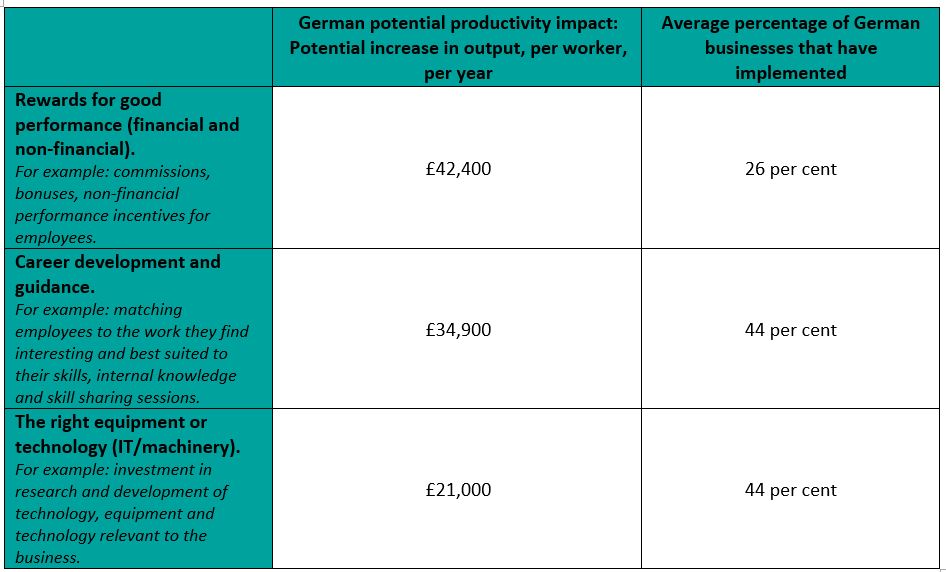UK SMEs could add up to £57 billion a year – more than the cost of Brexit – to the UK economy if they were as productive as SMEs in Germany.
NatWest has unveiled research, conducted by Cebr, showing that UK SME employees generate £147,000 worth of output per year on average – less than half that of their German counterparts (£335,000 per worker, per year).
This productivity gap is under further pressure according to the latest ONS estimates, which identified a 0.4 per cent fall in UK productivity in the first quarter of the year.
NatWest’s research, ‘Productivity in focus: Germany vs. the UK’, analysed the productivity of UK SMEs and those in Germany – the G7’s most productive economy – to identify potential changes UK firms can make to close the productivity gap.
It found that a UK business with ten employees could increase annual turnover by £1.9 million if they worked at the same productivity level as a German business, with this figure increasing to £4.7 million for businesses with 25 employees.
See also: Productivity post Brexit: Preparing to raise your game
The research also reveals that UK SMEs are uncertain about the actions they need to take to boost business productivity.
Even though more than two-thirds (69 per cent) of SME decision makers believe improving productivity is important, just over two-fifths (41 per cent) don’t know what productivity means in practice, making it difficult for them to identify the steps to improve.
How can UK SMEs become more productive?
To help UK SMEs understand how they can improve productivity, NatWest and Cebr identified the following measures with the biggest impact:

Investing in workplace culture, employee benefits packages and offering rewards for good performance were the measures most likely to have the greatest impact on improving productivity. Despite this, only a third (32 per cent) of UK SMEs said that they invest in workplace culture and employee benefits above the statutory minimum, and just over a quarter (26 per cent) offer rewards for good performance (both financial and non-financial), such as bonuses.
By comparison, a much higher percentage of SMEs in Germany are already implementing two of the top three measures most likely to have the greatest impact on German SME productivity. But, as is the case in the UK, German SMEs would also see a significant benefit per employee (£42,400) if they offered rewards for good performance.






